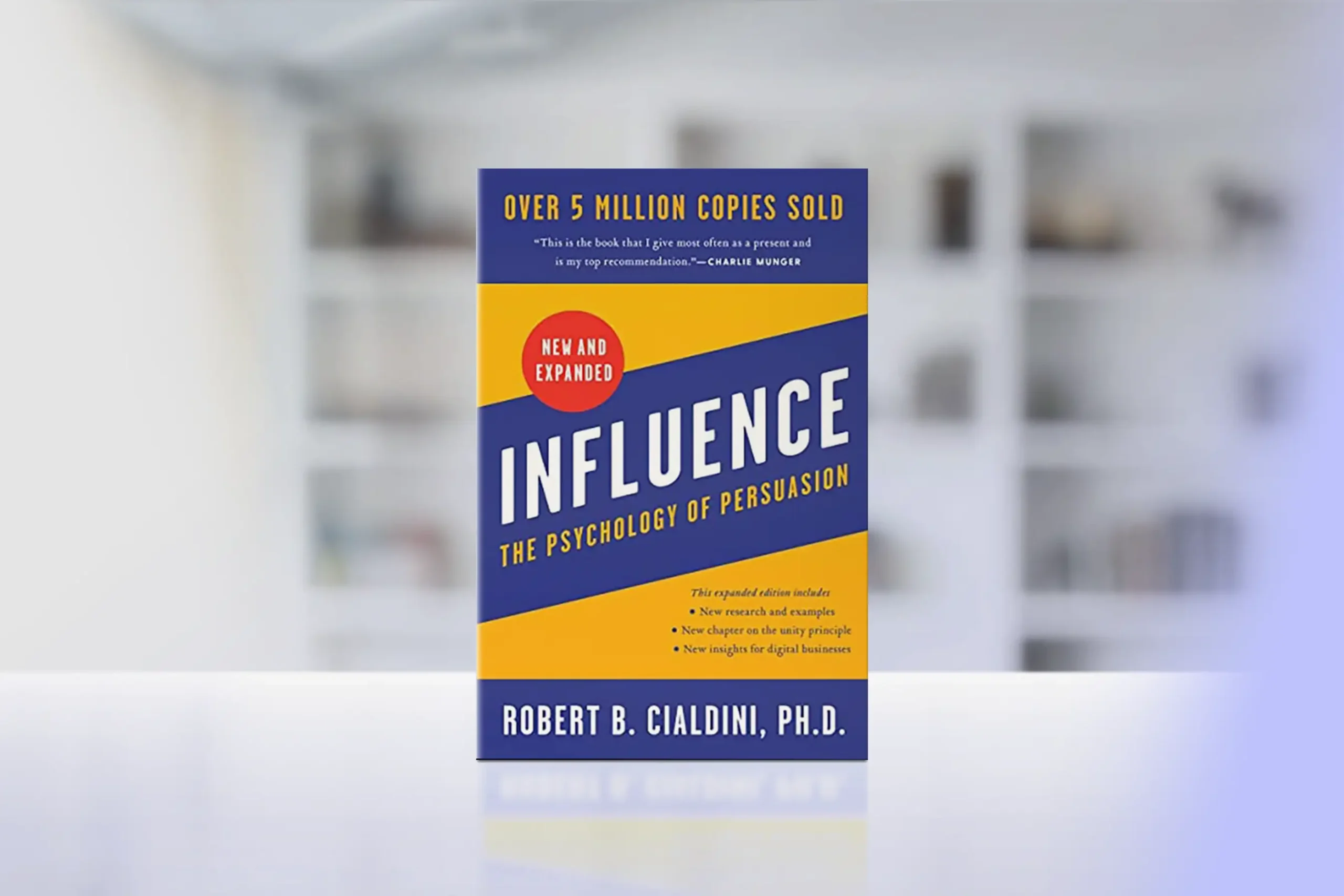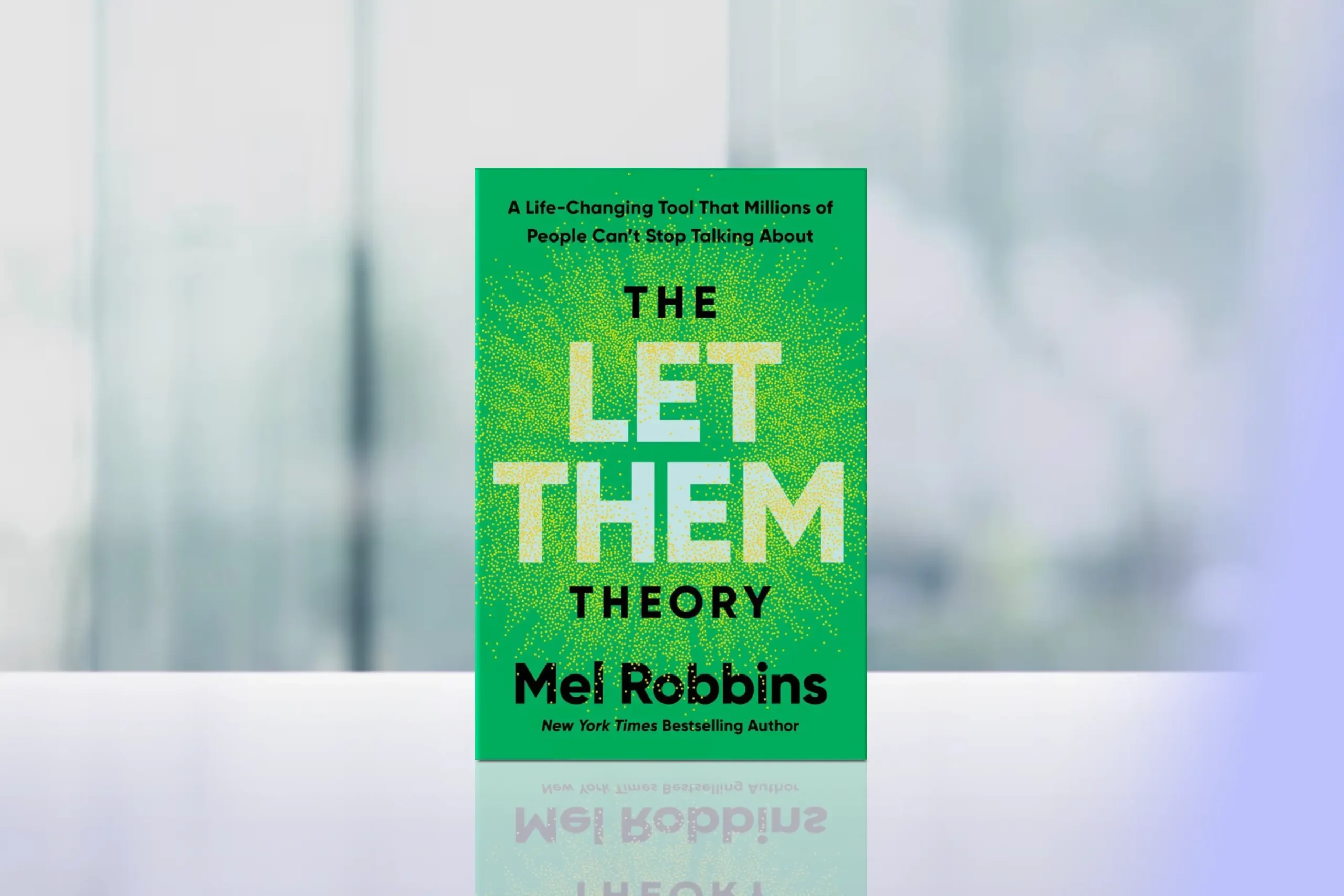In the realm of social psychology and marketing, “Influence: The Psychology of Persuasion” by Robert B. Cialdini stands as a cornerstone text.
First published in 1984 and revised over the years, this groundbreaking book offers profound insights into the psychological principles that drive human behavior and decision-making.
Cialdini’s reveals the tactics used by persuasion experts and equips readers with the knowledge to recognize and resist unwanted attempts to sway their decisions.
Core Concepts
“Influence” is built around six key principles of persuasion that Cialdini identified through extensive research and real-world observation:
- Reciprocity: People tend to return a favor
- Commitment and Consistency: People align with their clear commitments
- Social Proof: People follow the lead of similar others
- Liking: People are easily persuaded by other people they like
- Authority: People defer to experts
- Scarcity: People want more of what is less available
By understanding these principles, you’ll gain valuable insights into why you make certain decisions and how others might be influencing your choices. Cialdini’s approach empowers you to become more aware of persuasion attempts in your daily life and make more informed, autonomous decisions.
Chapter-by-Chapter Review
Chapter 1: Weapons of Influence
Cialdini introduces the concept of “click, whirr” responses, the automatic patterns of behavior that our minds trigger without conscious thought. These mental shortcuts let us make quick decisions but can also be exploited by skilled persuaders. By understanding these triggers, readers gain insight into how influence operates on a subconscious level.
Chapter 2: Reciprocation: The Old Give and Take…and Take
This chapter explores the deeply ingrained urge to repay debts, whether real or perceived. From free samples in marketing to favors among friends, Cialdini shows how reciprocation drives compliance. Even small gestures can create a powerful sense of obligation that shapes decisions in ways we rarely notice.
Chapter 3: Commitment and Consistency: Hobgoblins of the Mind
Our desire to appear consistent with past actions is a double-edged sword. Cialdini presents fascinating experiments and real-world examples showing how commitments—once made—can be used to influence future behavior. Small initial agreements often snowball, demonstrating the subtle power of consistency in shaping choices over time.
Chapter 4: Social Proof: Truths Are Us
Cialdini illustrates how social proof drives conformity, from viral trends to charitable giving campaigns. The examples are vivid: seeing others act in a certain way signals that it must be the correct or desirable choice, often bypassing rational thought.
Chapter 5: Liking: The Friendly Thief
People are more likely to comply with requests from those they like, and liking can stem from many factors—physical attractiveness, similarity, compliments, and cooperative behavior. Cialdini explores how this principle operates in everyday life, marketing, and sales, highlighting how influence can feel entirely natural while being carefully orchestrated.
Chapter 6: Authority: Directed Deference
Through classic studies like Milgram’s experiments, Cialdini demonstrates how titles, uniforms, and credentials can override personal ethics. The chapter is both eye-opening and cautionary, reminding readers to critically assess authority claims.
Chapter 7: Scarcity: The Rule of the Few
Perceived scarcity amplifies desire. Cialdini explains why items or opportunities that seem limited are often valued more highly and act as a strong motivator for action. The chapter is packed with practical examples from marketing, sales, and negotiations, showing how the mere suggestion of rarity can drive decisions rapidly and powerfully.
Key Strengths
- Grounded in rigorous scientific research and real-world observations
- Offers practical insights applicable to both personal and professional life
- Provides strategies for recognizing and resisting unwanted influence
- Engagingly written with numerous illustrative examples and anecdotes
- Balances theoretical understanding with practical application
Potential Drawbacks
- Some readers might find the ethical implications of using these principles challenging
- The book’s popularity means some concepts may feel familiar to well-read audiences
- Some examples may feel dated, despite revisions in newer editions
Who This Book Is For
This book is an invaluable resource for a wide range of readers, including:
- Marketing and sales professionals seeking to understand consumer behavior
- Business leaders and managers looking to improve their persuasion skills
- Individuals interested in psychology and human behavior
- Anyone wanting to make more informed decisions and resist manipulation
Final Review
“Influence: The Psychology of Persuasion” offers profound insights into the mechanisms of human decision-making and persuasion. Robert Cialdini’s clear, engaging writing style makes complex psychological principles accessible to a broad audience, while the depth of research ensures the book’s enduring relevance.
While some readers might feel uneasy about the potential for these principles to be used manipulatively, Cialdini’s ethical stance and focus on awareness and defense make this book a powerful tool for personal empowerment. By understanding these principles, you’ll be better equipped to navigate a world filled with persuasion attempts and make choices that truly align with your values and interests.
Rating: 4.6/5
An eye-opening exploration of the psychology of persuasion that empowers you to understand and navigate the hidden forces shaping your decisions.
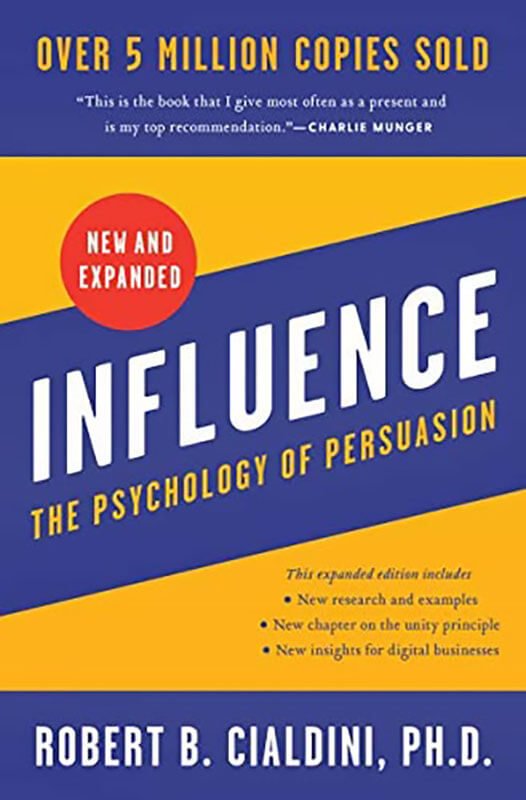
Alternative Books
If you are looking alternatives, consider exploring these related books:
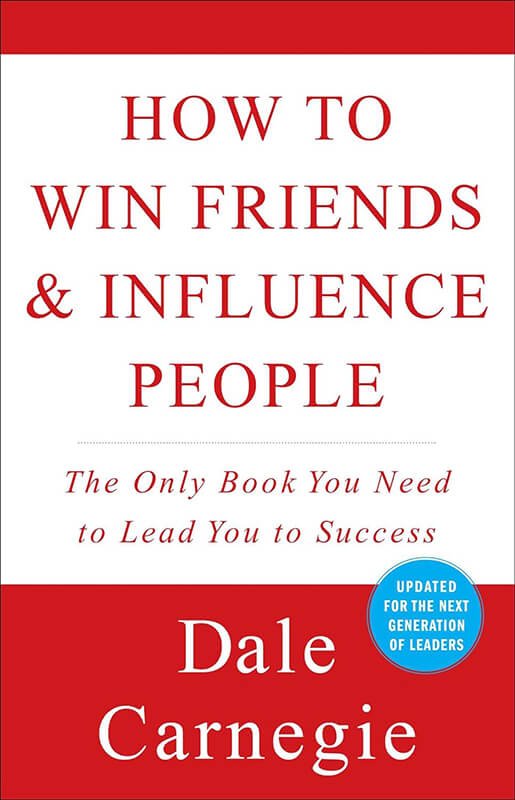
“How to Win Friends and Influence People” by Dale Carnegie
Improving your social skills and influencing others through understanding human behavior.
Rating: 4.7/5
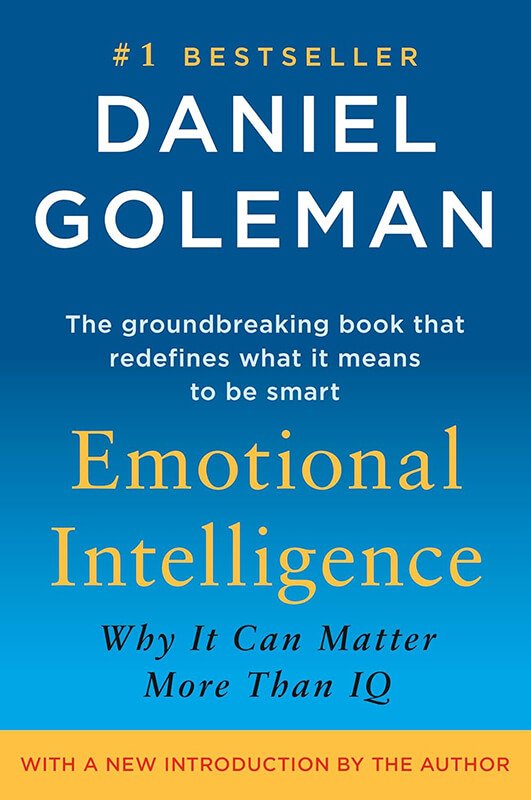
“Emotional Intelligence” by Daniel Goleman
Explores the role of emotional intelligence in decision-making and social interactions.
Rating: 4.5/5
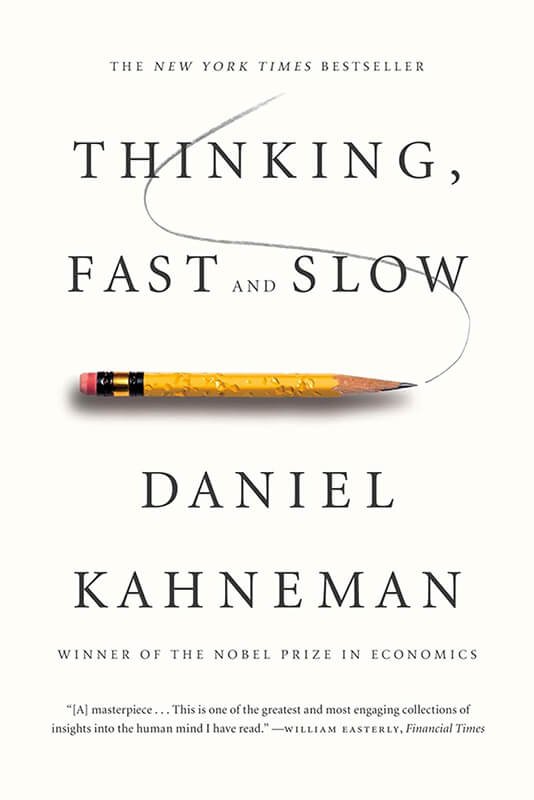
“Thinking, Fast and Slow” by Daniel Kahneman
Deep dive into the two systems that drive our fast and slow thinking.
Rating: 4.6/5

